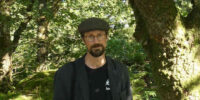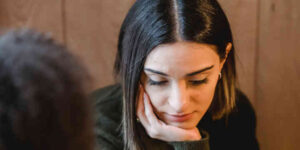What sort of a year have you had?
What determines whether we see 2023 as a “good” year or a “bad” one? Is it personal circumstances? Or world events? Or maybe a vague feeling of hope or negativity?
And if you don’t feel 2024 has been a good year, where do you find hope for the future?
A wretched year?
A pair of articles in my local newspaper (Sydney Morning Herald) looked at these questions. The first article (“So much for the Roaring Twenties. So far they’ve been wretched.” by Nick Bryant) suggested that 2023 in particular was a bad year. He was certainly able to offer good reasons for this stark conclusion.
Weather and climate
This year has seen numerous unwanted weather records broken. We’ve seen intense heatwaves in US, China and southern Europe, devastating floods in Libya, destructive wildfires in Canada, Hawaii, Rhodes and right across the Northern Hemisphere. Drought has become an unprecedented global emergency. Hurricanes are becoming more frequent and Cyclone Freddie killed 1400 people in East Africa. The oceans are hotter than ever recorded, Antarctic ice melt will be irreversible for a century and the rate of sea level rise has doubled, threatening numerous island and low-lying communities.
While not caused by climate change, earthquakes have devastated parts of Libya, Syria and Turkey.
Wars
The first world war was once dubbed “the war to end all wars”, but the world seems to be enmeshed in war right now. Hundreds of thousands of lives have been lost in the Russian war against Ukraine while something like 20,000 mostly civilian lives have been lost in Israel’s war on Gaza and the Hamas terrorist attack that provoked it. Both these conflicts have been characterised by brutal war crimes against civilians.
Smaller conflicts in Sudan, Myanmar, Armenia, Yemen, the Sahel and the Democratic Republic of Congo bring misery to many poor and powerless communities.
Dictatorship vs democracy
We may sometimes think that democracy is becoming the default form of government, but this has never really been so, and 2023 has seen an anti-democratic swing. Dictatorships, dodgy elections, repressive regimes or undemocratic governments afflict the people of many countries including Russia, Hungary, China, Saudi Arabia, Iran, North Korea and many other places. Supporters of right wing candidates in USA and Brazil have tried to topple the elected government by force in recent years.
And potentially less democratic governments more oppressive to minorities have been elected in Turkey, Argentina and Netherlands. Meanwhile, the report calls the US “a basket case” as voter suppression and gerrymandering threaten democracy, the House of Representatives struggles to do anything constructive and a small cabal of extremists hold the rest of the Republican party to ransom.
Artificial intelligence and social media
AI is a powerul tool, but many fear it will be used for evil, as it can easily provide results that are not well-based on evidence. Likewise many fear that social media and Google search are likely to tell people what they want to hear rather than a balanced assessment fo the facts. People can be led to believe almost anything.
Alternative views
Of course not everyone would agree with these assessments. Some feel the biggest problems are caused by immigrants, or people not like us, or socialism, or woke liberals. They feel threatened by the changes they see around them, and feel the most urgent thing is to get back control of society
For some, it is the increasing presence of women in what was once a man’s world, the rise of LGBTQI people demanding equality, the ready availability of abortion or their own loss of privilege that is most threatening. So threatening that they feel strong measures are needed to regain what has been lost.
Fear and hate
Sometimes it seems that the world is “drowning” in hate and fear. Politicians and media have learnt how to demonise their opposition and so create a sense of fear and hatred in their followers that can lead them to support extreme behaviours that they would otherwise reject.
When this occurs, one person’s sense of hope comes at the expense of someone else.
Is there a more positive and ethical way to find hope?
Where do people find hope?
The second article (“On a more positive note” by David Leser) canvassed public opinion on hope. Unsurprisingly people hoped for “peace and connection and loving kindness and an end to this sadness and madness”.
But were these hopes just vain wishes, born of an unrealistic feeling that times were bad and there was little left but desperate hope?
So the author started looking for something more. He reflected on Viktor Frankl who survived Auschwitz, and came to believe that even when facing a hopeless situation, we can rise above ourselves, rise above hatred, and find meaning that allows us to endure an otherwise hopeless situation.
But he saw no hope in that. If hope is wanting the best, then it is likely to be dashed.
A new definition of hope?
He turned to Irish poet Seamus Heaney, who redefined hope this way:
“Hope is not optimism, which expects things to turn out well, but something rooted in the conviction that there is good worth working for.”
So he started looking for examples of people defying negativity and finding some good that is worth working for – and found many:
- The Palestinian doctor who combatted racism, sexism, homophobia and anti-Semitism even after he lost 3 daughters to Israeli tank fire, and set up an organisation to improve the status and role of women in the Middle East.
- The Afghan woman who rescued 256 female students from the chaos of the Taliban taking over in Kabul, and set up a boarding school for them in Rwanda.
- The Philipino climate activist who said: “We encounter epic acts of courage …. that whipser to us that the depredations of the few will eventually be overcome by legions of stubborn people who refuse the counsel of despair”
- “White Hemet” volunteers rushing in to help when the bombs rained down in Syria.
- Environmental action that restored lakes and saw the return of migratory birds in Kashmir, the transformation of a British coalmine into the world’s largest battery storage project, and the Ukrainian economist who rescued wild animals from the destruction of the Russian invasion.
The negative news
He concluded that the news we all consume colours our thinking and takes away hope. We think the world is going to the dogs when in fact, on many measures, it is getting better. In the last few decades, child labour, extreme poverty, famine, crime and war victimes have all declined. We have the technology to take action on climate if only we all work for it.
But if the news, and fake news, leads us into fatalistic depression, then our worst fears will likely be realised, because we lose our incentive to work for the good.
Active hope
Instead, we need “active hope”, that recognises the bleakness of so many lives, but leads us to “becoming active participants in working towards the healing and recovery of our world.”
Christian faith and hope
There seem to be two very different Christian ideas about hope. On the one hand, many Christians have no hope in this world, and pin all their hopes on the next world. On the other hand, Christians have been at the forefront of many positive changes: hospitals, schools, aid and development programs, rehabilitation programs, and much more.
I am reminded of the atheist journalist who accompanied a Salvation Army officer on his nightly “beat” of assisting the homeless, the addicted, the lonely and the mistreated and recognised that the officer’s Christian faith led to much good while his own atheism didn’t.
The kingdom of God
Jesus taught that there was hope for the “healing and recovery” of the world. He described this as the kingdom or reign of God – people living out the radical lifestyle of the Sermon on the Mount, in obedience to God. Thus he saw his followers being God’s agents of change in the world.
Belief in the kingdom of God adds an extra dimension to active hope in several ways:
- It provides a clear example of hope-filled ways to live.
- It provides an incentive to persist (following Jesus and pleasing God).
- Jesus promised God’s power and guidance in living this way.
- There is hope that one day God will wrap everything up and bring justice and wholeness to the world.
Hope for 2024
I wish all readers the best for this Christmas holiday time, and especially that you will find hope for 2024, so that it becomes a year of opportunity rather than a year of despair.
Photo by Pixabay





Hi Eric! Been a while!
This article really resonated with me and was something my agnostic arse really needed to read. 2023 started out with promise but in my personal life it’s been one of the most difficult in quite a few years, having dealt with disappointment, bitterness and heartbreak. But I’ve been trying to cultivate goodwill , acceptance, empathy based perspectives and personal improvement and embrace a better way of approaching things.
It’s been one of those years for me so I’ve missed a few of your articles. I clearly have homework to do 😂.
Thanks for your message of hope, I really appreciate that quote :
“Hope is not optimism, which expects things to turn out well, but something rooted in the conviction that there is good worth working for.”
I’ll try to keep that in mind.
Hope you and your loved ones are well!
Aaron from the UK.
Hi Aaron, it’s good to hear from you.
Really sorry to hear you had such a difficult year. I do hope 2024 works out much better. I’m glad my post helped. I wrote it because it seems 2023 wasn’t all that good for a lot of people.